The U.S. CBD market is projected to reach $20 billion by 2022: That means new businesses are popping up everywhere to capitalize on the demand. With segments that range from Hemp biomass, to smokable flower, to hemp-derived CBD extracts, isolates and distillates—the CBD market offers diverse set of products to market and sell. The growth potential is uncapped, but it’s not without a few challenges.
Industrial hemp is now legal, but it's strictly regulated as of the USDAs recent hemp interim rules. Moreover, industrial hemp’s legal status does not necessarily apply to hemp-derived CBD (More on that later). That said, the opportunities are still likely worth the risk. If you’re part of the budding hemp and CBD industry or are considering launching a business, you’ll want to understand the challenges as well as the best practices to successfully sell your products at the highest price in today’s market.
In this post:
- Hemp CBD Biomass
- Smokable Hemp CBD Flower
- Hemp CBD Extracts
- CBG is Growing In Popularity

Hemp CBD Biomass
Following the passage of the 2018 Farm Bill, the hemp biomass market grew exponentially. Unfortunately supply outpaced the demand and that has led to the recent slump in prices you see today.
But aside from market fluctuations, there are still immense opportunities to grow and sell your hemp biomass. Ultimately the success you achieve will depend on the quality and safety of your plants as well as the buyers you work with and the deals that you make.
How Does Quality Affect Biomass Price?
In order to boost the value of your hemp CBD biomass, consider the following:
- How much CBD does your hemp contain? The more potent your harvest is, the more you can earn because pricing is directly dependent on the concentration of CBD per pound (measured on a dry weight basis).
- How was it harvested? Harvesting method is another factor that may influence the quality and price of your product. According to Industrial Hemp Farms hand-harvested plants may produce up to 5% more CBD vs machine harvests, which can destroy precious CBD-filled buds.
- How much moisture does it contain? When CBD biomass is not dry enough, it will result in a decreased wholesale price. Why? Hemp biomass price is determined by CBD content on a per pound basis and if a product contains too much moisture, it will be artificially heavier (and more expensive). Thus, the buyer will adjust the price to account for lower value of end product once it is cured.
- Is it free of contaminants? If your biomass contains any harmful toxins like mold or residual pesticides it may severely drop in value if it’s sellable at all.
Your buyers may want proof that your biomass is 100% safe. That’s why it’s important to test with an accredited lab like ACS. Check out our recent blog for more on hemp market value trends.
How Do I Sell Hemp Biomass?
The Buyer Model
As a CBD biomass producer you have a few markets to sell to including hemp farming companies like Phase 2 Extraction, that grow their own hemp, process it and sell it. You may also work with a CBD processing and extraction company whose sole job is to extract CBD and other cannabinoids to make refined oils and distillates. Finally, you might work with a broker, whose job it is to connect farmers to buyers.
Selling directly to buyers will ensure that you get the price you deserve from a partner whose quality you trust. Brokers can also be a great resource--especially if you’re new to the market-- but working with a broker means that you’ll need to forfeit some of your profits to pay their commission.
Moreover, you may find yourself working with a broker who can’t deliver the terms they promise. Alternatively, if you find a buyer to work with directly, you can negotiate terms such as price, lead time, and volume. Whoever you decide to sell to, the best idea is to secure payment up front so that there are no surprises later.
Production Contracts
Another method to secure sale of your hemp biomass is to engage in hemp futures contracts, which are agreements between hemp companies and a seller to lock down pricing before the plants are harvested. This can be a beneficial business model to reduce your risk of producing plants without a buyer, which will allow you to forecast profits.
On the downside, when you sign a futures contract you lock in pricing, regardless of how the market changes. That means you may need to sell your hemp for less than its ultimate value. While contracts may seem secure, they still rely on the people who signed them.
Therefore, if you’re a small to mid-sized operation, you’ll want to vet the company on the other side of the paperwork first.
Questions to consider:
- Does your contract prevent the company from backing out of the deal if they find a better one somewhere else?
- What happens to the contract terms if your crop tests for less than the expected CBD content?
- Do you have a legal team in place to litigate on your behalf if needed?
Hemp Field Profit Sharing
Hemp farm profit sharing is another potential source of income if you’re a biomass producer with limited cash flow. Industrial hemp seeds and clones can be extremely costly and prohibitive to your ability to expand production. Through profit sharing, you can find a buyer to supply funds for the materials and cultivation process. That buyer will then sell the harvest and split the percentage of profits with you.
This helps eliminate the high barrier to entry and may be a great option, but you must also ensure that your business partner is trustworthy and can provide the final profits your business needs to thrive.
Legal Considerations
As of the 2018 Farm Bill it is legal to buy and sell hemp biomass across the country as long as it does not exceed the threshold of THC. According to the USDA’s recent rules, hemp must contain less than 0.3% total THC on a dry weight basis, which is defined by the following equation: TOTAL THC= (%THCA*.877) + %Delta9.
The USDA requires that you test at least 15 days prior to harvest. If your crop is non-compliant, it is not eligible for sale and must be destroyed.
Bottom Line
In order to legally sell your hemp CBD biomass and get the best price, you’ll need to provide proof of its potency and quality through accredited laboratory tests. ACS Laboratory is ISO17025 accredited and DEA certified with award winning accuracy. Contact us today to test your hemp biomass.
Smokable Hemp CBD Flower
Smokable hemp flower is only about 2% the CBD industry today, but according to Market Insider, it is also one of the fastest-growing segments with an explosive growth projection. As states are loosening restrictions on smokable flower, hemp dispensaries are popping everywhere across the nation. Companies are also selling smokaable flower directly to consumers online.
There is a massive opportunity to join a fast-growing segment of the CBD market, but you must also understand the risks. Let’s review the best practices and legal landscape for selling smokable CBD Flower.
How Do I Sell Smokable Flower?
The Dispensary Model
If you have a shelf ready smokable hemp product you may choose to sell to dispensaries via buyers or through distributors. Dispensaries can be an invaluable sales channel because when your products are on shelves at trusted dispensaries, the customers who visit the stores are more likely to trust your product as well. Every customer who visits the store can see, touch and learn more about your brand.
This is also a great method to guarantee large volume orders, especially when you sell to dispensaries with several locations. When you work directly with dispensary buyers or distributors, you have the opportunity to negotiate contracts with minimum order requirements and request the price that your product warrants based on its quality.
The eCommerce Model
You may also sell directly to consumers via online platforms or your own ecommerce website. This is a great option if you have the infrastructure in place, including the funds to hire a team to market your brand. Through online sales, you have the power to dictate the price point of your products.
You also get to own your own customers and remarket to them to inspire future sales. When you sell online, you have unlimited growth potential, but you’re also competing in a vast landscape of hemp companies fighting for market share.
What are the challenges?
Online marketing for hemp CBD is perhaps the biggest challenge to the ecommerce model because giants like Google, Amazon and eBay do not allow advertising. Sales may also be a challenge, as you may not be able to process payments.
So, if hemp is legal, why can’t you advertise and sell your smokable hemp CBD online? Despite state level acceptance, on a federal level, the FDA has not investigated smokable hemp for use in consumer facing products.. That means smokable hemp sales is in seriously murky legal territory.
What Can I Do About It?
One method to help minimize risk is to understand and comply with your state’s rules and regulations for smokable hemp sales. You will want to ensure that you are only selling to customers within your state. Once you cross state lines, you may be at greater risk for product recalls or punitive actions.
With regards to your digital marketing strategy, you may want to highlight the importance of terpenes and cannabinoids with less emphasis on the word “CBD.” This will ensure that you remain search engine friendly.
Hemp CBD Extracts (Oils, Isolates and Distillates)
When crude hemp oil undergoes distillation, it becomes refined hemp oil. Refined hemp oil breaks down into three categories of extracts: CBD full spectrum oil, CBD broad spectrum oil, and THC-free distillate.
Extracts can be used for products ranging from sublingual tinctures to edibles, topicals and vape concentrates. When refined hemp oil is even further purified, it becomes a CBD isolate which contains 0% THC and up to 99.99% CBD.
As a whole, CBD extracts and their related products command the highest price point in the hemp market. Due to their purity and potency, CBD isolates will generally warrant the highest of all products, followed by THC-free distillates, broad spectrum, and finally full spectrum oils.
But pricing is not necessarily a linear equation. If you successfully market your brand with beautiful packaging, known for quality products, you have more power to set a higher price point.
How Do I Sell My Hemp CBD Oils, Extracts or Isolates?
Like smokable flower, you may choose to sell CBD extracts in brick and mortar dispensaries or via ecommerce platforms. But unlike smokable flower, you also have the opportunity to sell CBD extracts to local, regional and potentially national retail chains.
From coffee shops, to yoga studios, gas stations, and health food stores, the opportunity to grow your brand is immense. For example, earlier this year CVS and Walgreens announced plans to carry products CBD products.
So, What are the Challenges?
The FDA is still investigating CBD to determine whether or not it may be safely sold and marketed as a food or dietary supplement product.. As such, hemp can only technically be sold for industrial purposes in applications like textiles, beauty creams and clothing for example. At the same time, the FDA is aware of the current consumer market and plans to publish rules related to its usage in the near future.
But based on today’s lack of guidance, you must be extremely careful about how you market, label, and sell your smokable CBD product. You must also be aware of the risk for product recall if your hemp CBD extract does not comply with the future regulations.
Until the federal government provides greater guidance, you may need to get creative when labeling your product and be sure to follow the FDA’s established rules for food and supplements . To market your product online, consider an organic search strategy that utilizes keywords, which do not mention CBD specifically.
You can also try paid advertising, but your account may get shut down. The process of marketing will require a bit of ingenuity and a lot of trial and error but may be well worth the effort.

Despite the legal challenges, the most important aspect of developing a successful hemp CBD brand is to create a high-quality product that will pass any scrutiny by regulators or consumers. If you want to stand out from the crowd, the key is to test your products with ISO Accredited, DEA Registered laboratories like ACS who can validate its safety and potency. You’ll want to be as transparent as possible so that your buyers understand the value of your product and customers trust its quality.
Regardless of the hemp product you offer, you have channels to sell to and options to boost profits through a competitive quality edge.
At ACS Laboratory, we stay current with the entire spectrum of Hemp/CBD products from Soil to Oil as well as the compliant testing landscape so that we can better serve our customers.
Contact us today to schedule a test.


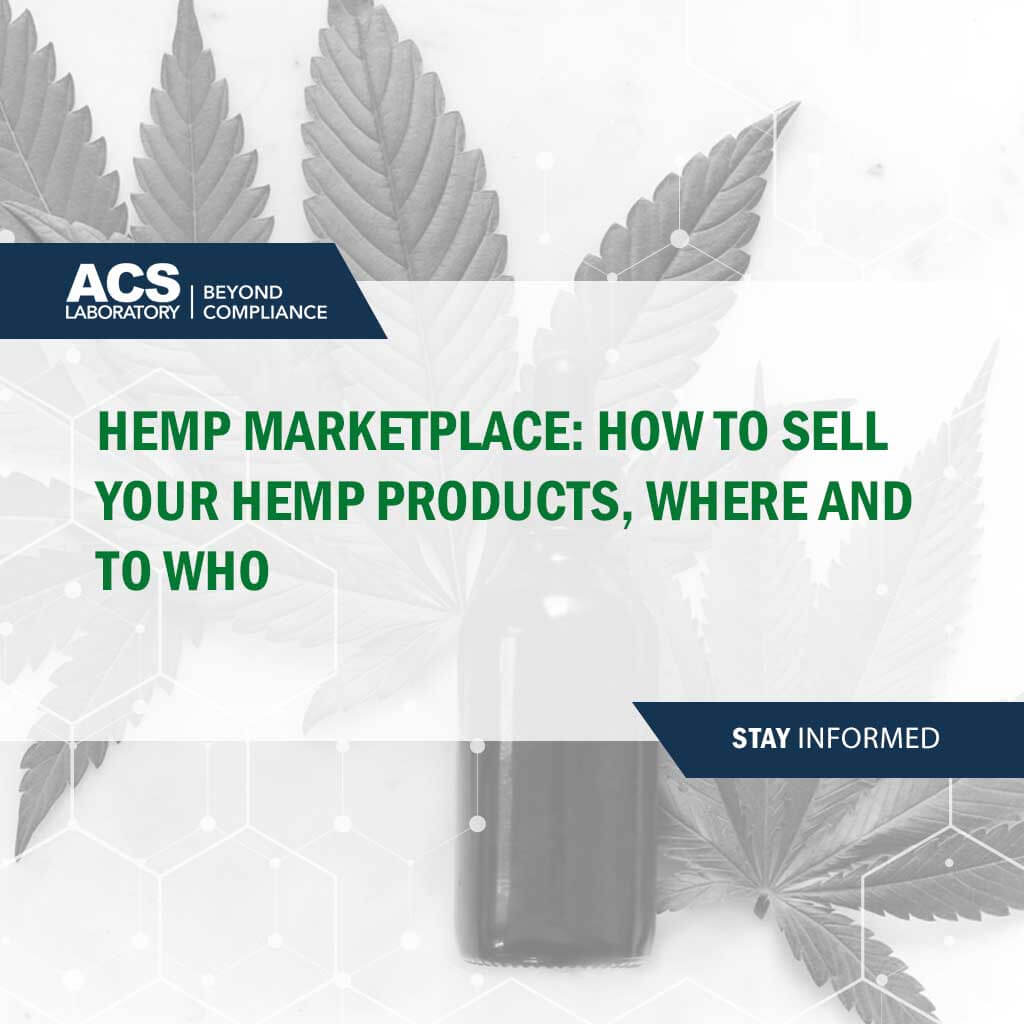
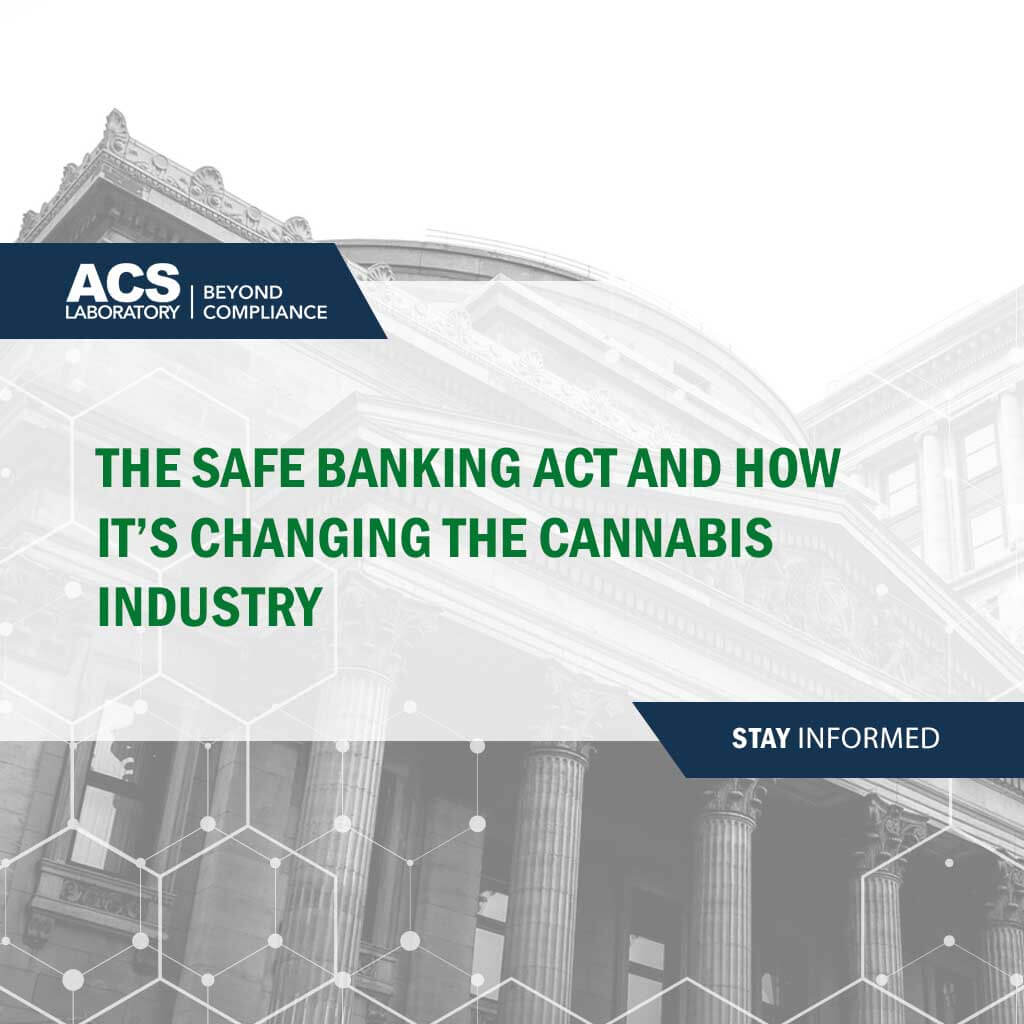
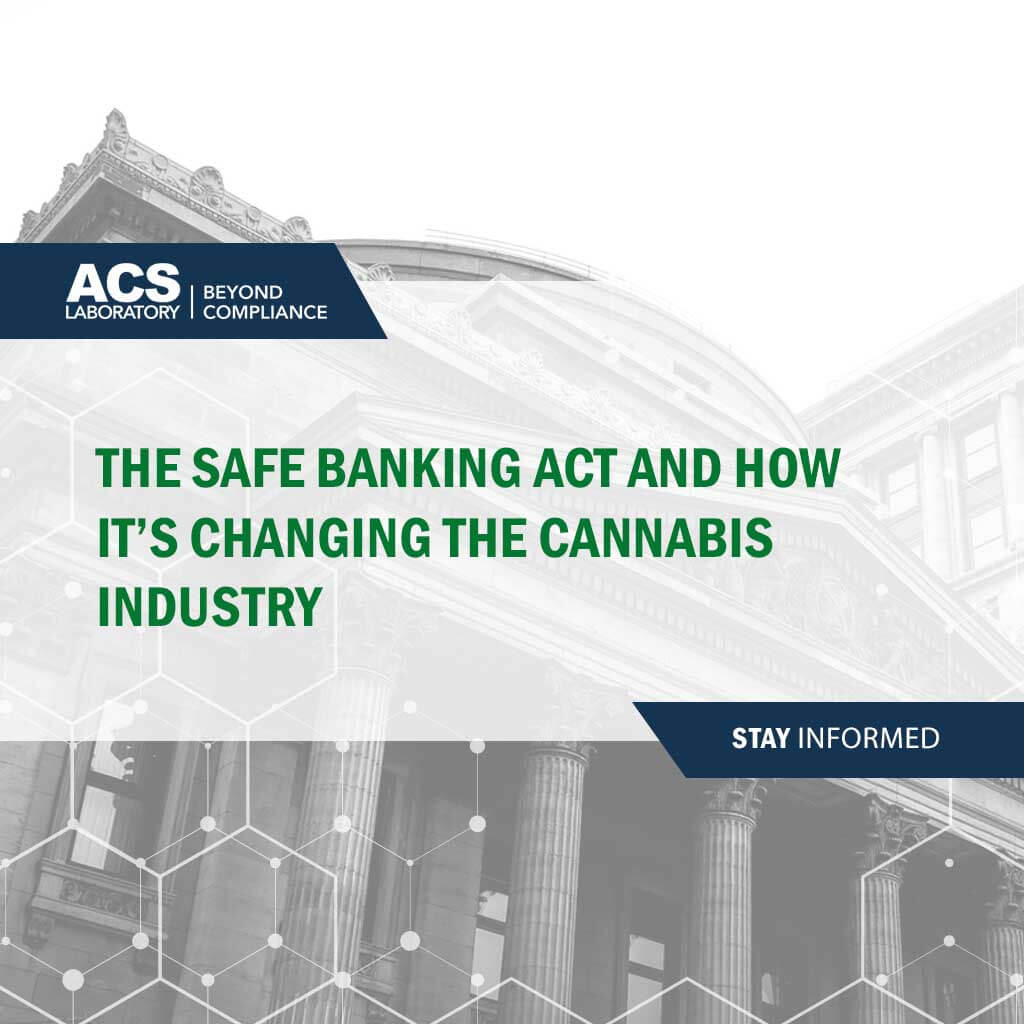
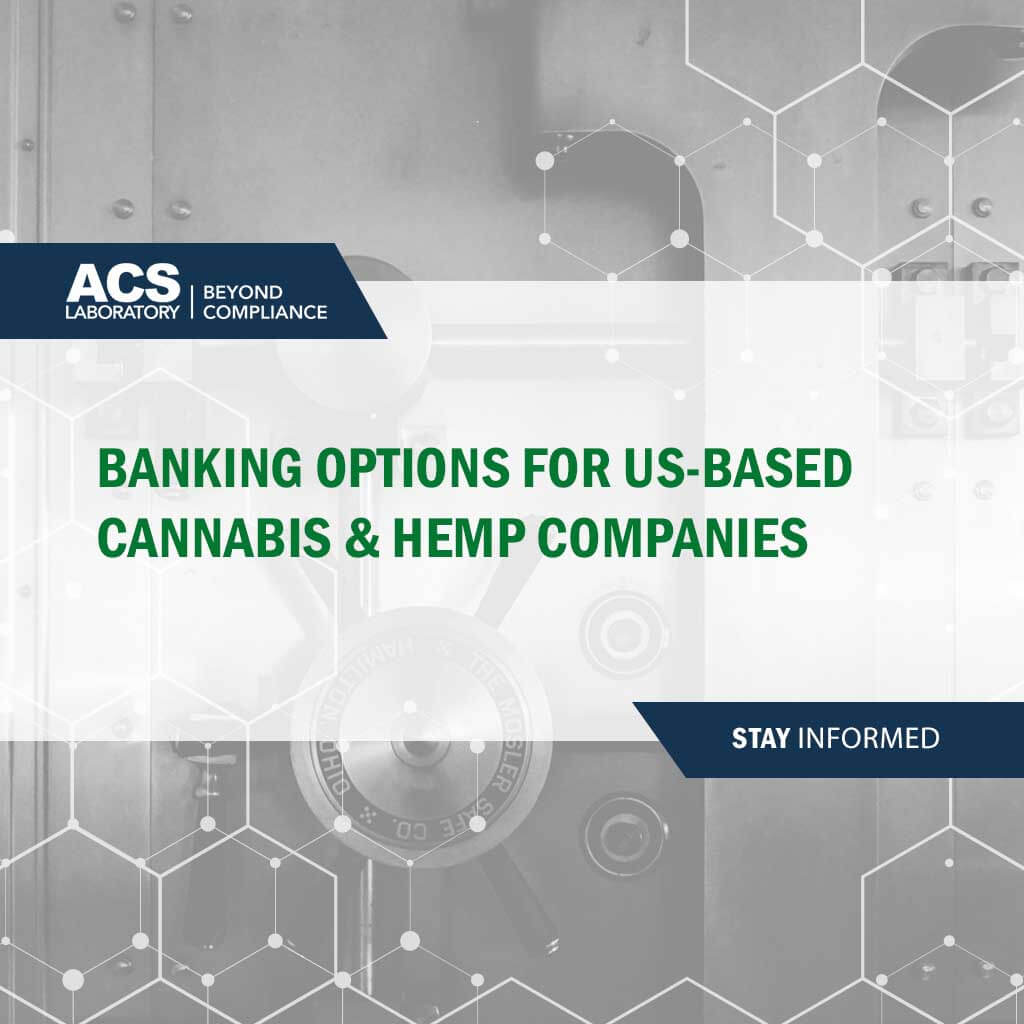
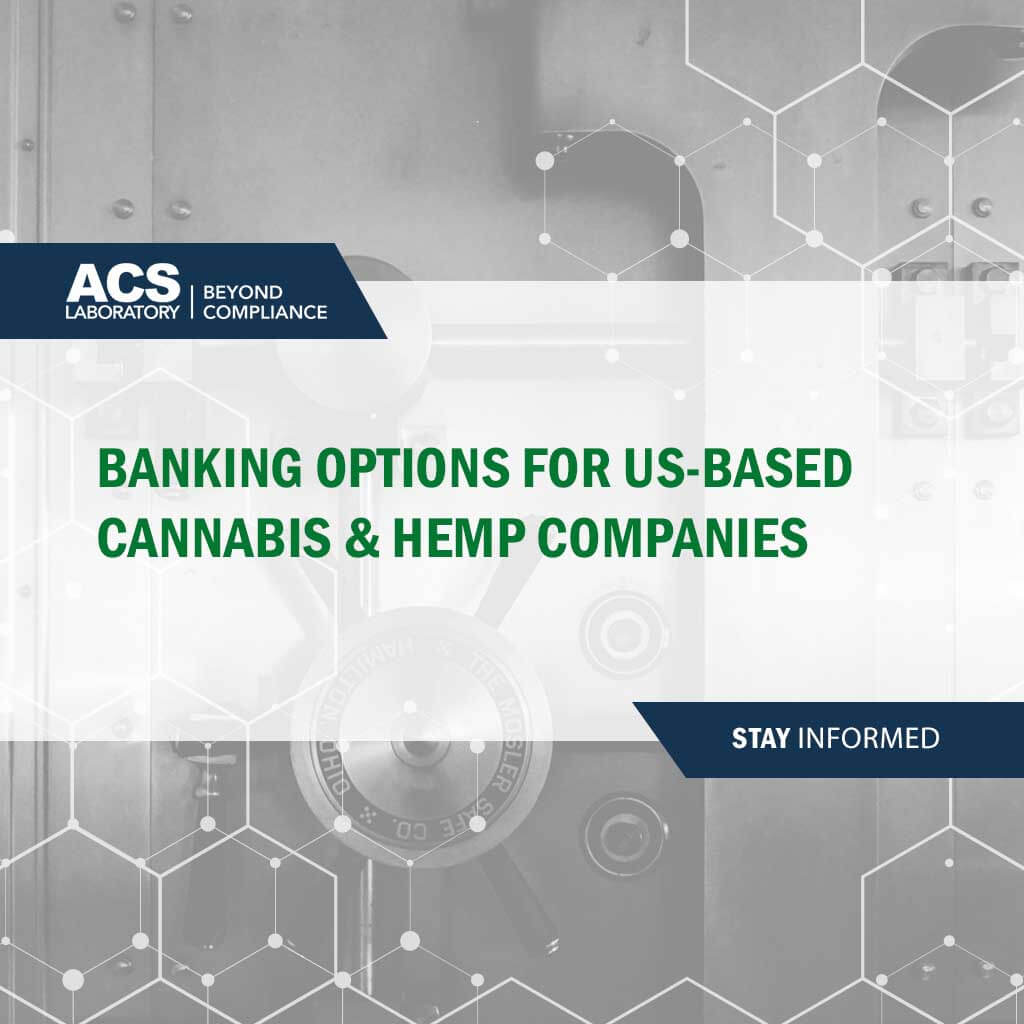



.png)
.png)
.png)
.png)
.png)